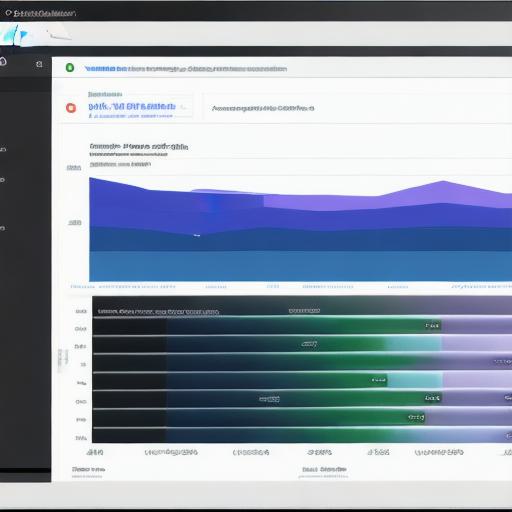Marketing is a crucial aspect of any business, whether you’re just starting out or an established enterprise. However, with so many marketing tools available, it can be challenging to determine which ones are best for your small business. In this comprehensive guide, we will explore the top free marketing tools for small businesses that will help you grow your online presence and increase your sales.
1. Hootsuite: The All-in-One Social Media Management Tool
Hootsuite is a popular social media management tool that allows you to manage all of your social media accounts in one place. With Hootsuite, you can schedule posts, monitor conversations, and analyze your social media metrics. This tool is ideal for small businesses that want to save time and streamline their social media marketing efforts.
2. Google Analytics: Tracking Your Website Traffic
Google Analytics is a free web analytics service that allows you to track website traffic, analyze user behavior, and monitor your website’s performance. With Google Analytics, you can determine which pages on your website are performing well and which ones need improvement. This tool is essential for small businesses that want to optimize their website for better search engine rankings and drive more traffic to their site.
3. Canva: Designing Visual Content
Canva is a free graphic design tool that allows you to create professional-looking visual content, such as logos, social media posts, and presentations. With Canva, you can choose from pre-designed templates and customize them to suit your brand’s needs. This tool is perfect for small businesses that want to create high-quality visual content without hiring a professional designer.
4. Mailchimp: Building and Managing Email Lists
Mailchimp is a free email marketing platform that allows you to build and manage email lists, send newsletters, and track your email campaigns’ performance. With Mailchimp, you can segment your email list based on demographics and interests, which will help you create more targeted and effective email campaigns. This tool is ideal for small businesses that want to build relationships with their customers and increase sales through email marketing.
5. Buffer: Scheduling Social Media Posts
Buffer is a social media scheduling tool that allows you to schedule social media posts in advance, so you don’t have to post manually every day. With Buffer, you can create a content calendar and schedule posts across multiple social media platforms at once. This tool is perfect for small businesses that want to save time and ensure consistent posting across their social media channels.
6. SEMrush: Analyzing Search Engine Data
SEMrush is a comprehensive SEO tool that allows you to analyze search engine data, track your website’s performance, and identify opportunities for growth. With SEMrush, you can perform keyword research, analyze your competitors’ strategies, and track your website’s traffic and rankings. This tool is essential for small businesses that want to improve their search engine visibility and drive more traffic to their website.
7. Sprout Social: Managing Multiple Social Media Accounts
Sprout Social is a social media management tool that allows you to manage multiple social media accounts in one place. With Sprout Social, you can schedule posts, monitor conversations, and analyze your social media metrics. This tool is ideal for small businesses that want to save time and streamline their social media marketing efforts across multiple platforms.
8. Ahrefs: Analyzing Backlinks and Website Traffic
Ahrefs is a powerful SEO tool that allows you to analyze backlinks, track website traffic, and identify opportunities for growth. With Ahrefs, you can perform keyword research, analyze your competitors’ strategies, and track your website’s performance in search engines. This tool is essential for small businesses that want to improve their search engine visibility and drive more traffic to their website.
9. Canva: Designing Visual Content
Canva is a free graphic design tool that allows you to create professional-looking visual content, such as logos, social media posts, and presentations. With Canva, you can choose from pre-designed templates and customize them to suit your brand’s needs. This tool is perfect for small businesses that want to create high-quality visual content without hiring a professional designer.

10. Trello: Managing Projects and Tasks
Trello is a project management tool that allows you to manage projects and tasks, collaborate with team members, and track progress in real-time. With Trello, you can create boards, lists, and cards to organize your workflow and ensure that everyone is on the same page. This tool is ideal for small businesses that want to streamline their marketing efforts and improve collaboration among team members.
Case Studies: How Small Businesses Have Used These Tools to Grow
To illustrate how these tools can be used effectively by small businesses, let’s take a look at some real-life examples:

Example 1: Hootsuite
ABC Bakery is a small bakery that sells freshly baked goods and desserts. They use Hootsuite to manage their social media accounts, schedule posts in advance, and monitor conversations with customers. By using Hootsuite, they have been able to increase their social media following and engagement, which has led to more sales and revenue for the business.
Example 2: Google Analytics
XYZ Fitness is a small fitness studio that offers personal training and group classes. They use Google Analytics to track website traffic, analyze user behavior, and optimize their website’s performance. By using Google Analytics, they have been able to improve their search engine rankings, increase website traffic, and generate more leads for the business.
Example 3: Canva
123 Design is a small graphic design studio that creates logos, branding materials, and visual content for other businesses. They use Canva to create professional-looking designs quickly and easily. By using Canva, they have been able to save time and increase productivity, which has led to more client work and revenue for the business.
Example 4: Mailchimp
MNO Sales is a small online retailer that sells handmade jewelry and accessories. They use Mailchimp to build and manage their email list, send newsletters, and track email campaign performance. By using Mailchimp, they have been able to increase sales through email marketing campaigns and build stronger relationships with their customers.
Example 5: Buffer
PQR Marketing is a small digital marketing agency that helps businesses improve their online presence. They use Buffer to schedule social media posts across multiple platforms in advance, ensuring consistent posting and engagement. By using Buffer, they have been able to save time and increase social media following and engagement for their clients.
Comparing These Tools: Which One is Right for Your Business?
When choosing the right marketing tools for your small business, it’s important to consider your specific needs and goals. Here’s a comparison of these tools to help you make an informed decision:
Hootsuite vs. Buffer: Both Hootsuite and Buffer are social media scheduling tools that allow you to schedule posts in advance. However, Hootsuite offers more features, such as analytics and team collaboration, making it a better choice for businesses that want a comprehensive social media management solution.
Google Analytics vs. Ahrefs: Both Google Analytics and Ahrefs are SEO tools that allow you to analyze website traffic and search engine data. However, Ahrefs offers more advanced keyword research and competitor analysis features, making it a better choice for businesses that want to improve their search engine visibility and drive more traffic to their website.
Sprout Social vs. Trello: Both Sprout Social and Trello are project management tools that allow you to organize workflows and collaborate with team members. However, Sprout Social offers more features, such as social media management and analytics, making it a better choice for businesses that want a comprehensive marketing solution.
Summary: The Best Marketing Tools for Small Businesses
In conclusion, there are many marketing tools available to small businesses, but not all of them are created equal. By choosing the right tools based on your specific needs and goals, you can streamline your marketing efforts, improve collaboration among team members, and increase revenue for your business. So, take the time to research and compare these tools and choose the ones that will help you achieve your marketing goals.




